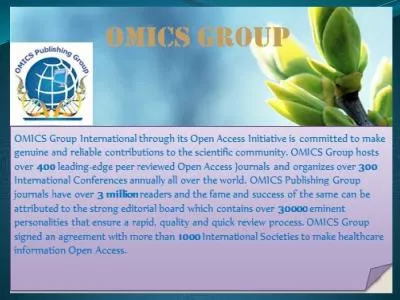PDF-Graduate Education in the Department of Pathology
Author : roberts | Published Date : 2020-12-07
20182019 MOLECULAR ONCOLOGY AND TUMOR IMMUNOLOGY TRAINING PROGRAM DEPARTMENT OF PATHOLOGY 550 First Avenue Medical Sciences Building 5th Floor New York NY 10016 molecularoncologyandimmunology C
Presentation Embed Code
Download Presentation
Download Presentation The PPT/PDF document "Graduate Education in the Department of ..." is the property of its rightful owner. Permission is granted to download and print the materials on this website for personal, non-commercial use only, and to display it on your personal computer provided you do not modify the materials and that you retain all copyright notices contained in the materials. By downloading content from our website, you accept the terms of this agreement.
Graduate Education in the Department of Pathology: Transcript
Download Rules Of Document
"Graduate Education in the Department of Pathology"The content belongs to its owner. You may download and print it for personal use, without modification, and keep all copyright notices. By downloading, you agree to these terms.
Related Documents














